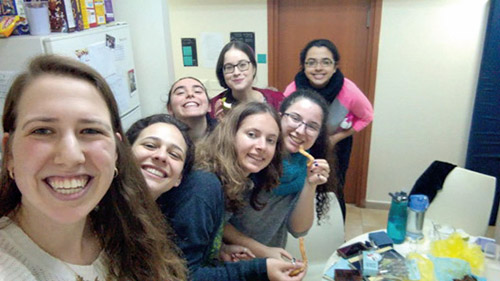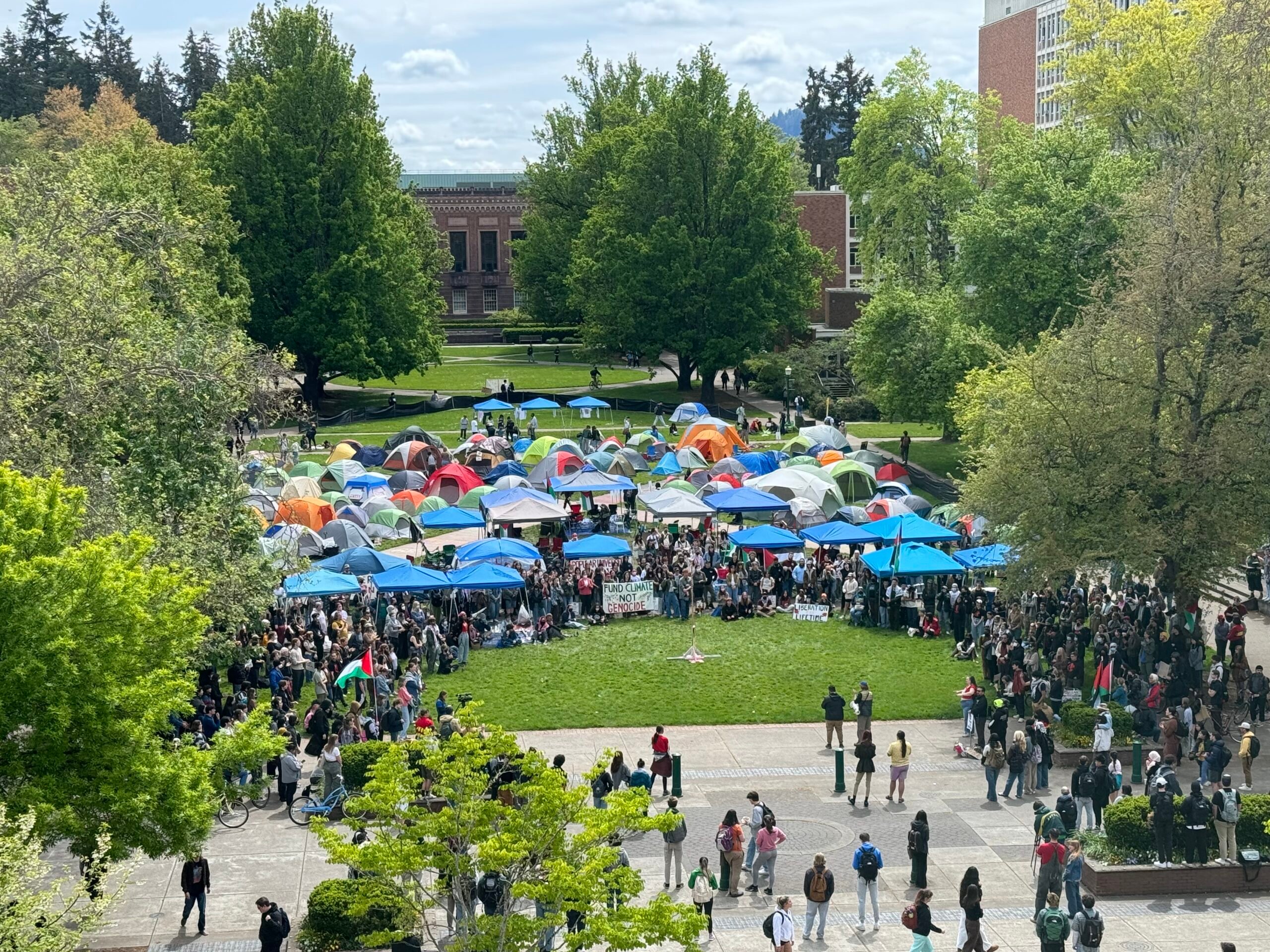


Alyssa Schnipper is studying at Nishmat in Jerusalem. She’s from Union, New Jersey, and grew up in the Elizabeth Jewish community. Her family davens at the Elmora Hills Minyan. She attended Kushner for elementary and high school, and recently attended the Bet Midrash Program at Moshava IO, joining as a counselor last summer.
Why did you choose to study at Nishmat?
Last year, when I began looking into the different seminaries, the first step I took was to write down some of what I wanted from my year. The list wasn’t set in stone, and I knew that it would change and develop as I got a better sense of what a year in Israel actually meant, but it gave me the first push I needed. What I decided on was: a place with serious Gemara and Tanach learning, where I could grow while still being true to myself. I found all of that and more at Nishmat, no question about it.
I feel at Nishmat that I could and would be able to learn anything I wanted, improve my Hebrew language skills, and get to know Israel and its culture without having to sacrifice the American side of me. It’s a school where I’m learning to be independent, which includes everything from looking up recipes and buying the ingredients to balancing the intense learning schedule and going out with friends. Lastly and possibly most importantly, it’s a place where mature young women all come together to learn, argue and grow. And I am so glad to be part of that and to be able to call Nishmat my home.
What kind of goals do you have for the year?
I wanted to learn Torah; there was so much information that I knew I hadn’t been exposed to in high school, and I couldn’t wait to broaden my knowledge and understanding of the religion I believe in and practice so fully. I wanted to make friendships that would stay with me for the rest of my life, to find girls whom I could connect with. I also wanted to strengthen my Hebrew skills, learn about Israeli culture, tour the land and be happy!
What kind of challenges have you faced coming to Israel?
Definitely that my family and a lot of my friends are still in the U.S. With modern technology, it may be different than it used to be, but it’s still not the same as speaking to someone face to face. And, for those of us who aren’t the best at answering texts and keeping in touch (sorry, Mom), it’s very difficult. I’m learning the true meaning of friendship and what it means to be a friend. Though being across an ocean from some of the most important people in my life is hard and sometimes makes me sad, I know that being here and doing what I am doing is important to me, and I wouldn’t want to be anywhere else.
How has your year been different from your expectations?
I prepared myself by listening to what other people told me about their transitions and readying myself to face those issues. I asked for helpful tips and things that made it better for them. Armed with all of this information and all of these techniques, I was ready to take on seminary, and I must say it made my transition smoother and less stressful than I know it could have been.
I was so ready for this Israeli culture, or so I thought. It turns out that the Israeli mentality is not quite the same as the American one. It’s not just the blundstones or over abundance of falafel; there’s lots of little things that aren’t quite the same when you pay attention to them, but no one is unwilling to explain or make compromises.
Which is one of your favorite classes at Nishmat?
One of my favorite classes this year is Sefer HaTanya taught by Rav Shai, the head of the Israeli program. Before coming to Israel I had never even heard of Sefer HaTanya, and now I look forward to learning it every week. Sefer HaTanya was written by the Alter Rebbe, the first Lubavitcher Rebbe. Though I don’t think I will be becoming Chabad in the near or distant future, I love having the opportunity to learn about the roots of this movement.










